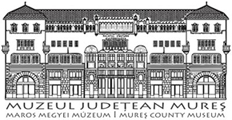Marisia - Maros Megyei Múzeum Évkönyve 28. (2006)
Istorie
EVOLUTIA MONETÄRIEI DIN ÓRAIUL BAIA MARÉ ÍN SECOLELE XV-XVI MIHAELA MÄNÄRÄZAN The Evolution of the Mint from Baia Mare in the 15th-16th Centuries (Summary) The evolution of this institution cannot be studied without being paralleled to the urbanization process taking place in the Middle Ages Transylvania, in the 16th century and moreover with the phenomenon occurring in the middle of this century, when the difference between the towns began to be institutionalized, based on criteria of economical importance: mining and commercial towns. In the former category can be placed the town of Baia Mare, whose judicial, economical and social organization is documented in the privileges given by the Hungarian Royalty during the 16th century, respectively the privileges received in 1347, 1376, 1391. Even so, the “written” history of the mint from this town begins only in the first half of the 15th century, being first mentioned in the documents in 1411. Although the political background was not always extremely favorable, the mint and the town developed a significant activity. These institutions played an important part not only in the process of increasing the merchandise-money relations, contributing to the stimulation of the role of the money as a means of measurement and circulation of values, but also in the process of emphasizing the function of means of economization, of accumulation, helping develop the commercial capital in the area. Evolutia acestei institutii nu poate fi prezentatä färä a о raporta la procesul de urbanizare care are loc in Transilvania medievalä in secolul al XlV-lea, cu precádere la fenomenul intälnit la mijlocul acestui secol, cänd se manifestä о diferentiere intre ora§e, acestea impärtindu-se in urbe miniere §i comerciale1. ín categoria celor dintäi, se situeazä §i ora§ul Baia Mare, a cärui organizare juridicä, economicä §i socialä este surprinsä in privilegiile acordate de regalitatea maghiarä, in secolul al XlV-lea, respectiv privilegiile din 1347, 1376 §i 13911 2. Cu toate acestea, istoria „scrisä” a monetäriei ora§ului Baia Mare incepe in prima jumätate a secolului al XV-lea, fiind mentionatä documentar pentru prima datä la 14113. Cäteva consideratu juridice legate de problema dreptului de a bate monedä ín aceastä perioadä, chestiunea baterii monedei in Europa Centralä dar §i in alte zone ale Europei tine exclusiv de regalitate4; dreptul de a bate monedä era 1 Enikő Rusz-Fogarasi, Privilegiile §i indatoririle a§ezärilor urbane din Transilvania voievodalä, Tezä de doctorat, Cluj, 1998, p.73. Fügedi Erik Koloduló barátok, polgárok, nemesek, Budapesta, 1981; 2 Samuel Goldenberg, Contribute la о istorie a cämärii §i monetäriei din Baia Mare, Tn All Cluj, III, 1958-1959, p.153. 3 ANDJ-MM., Fond Primaria ora§ului Baia Mare, Seria Documente privilegiale, nr 6/1411. 4 Enikő Rüsz Fogarasi, op.cit, p.116. 163
